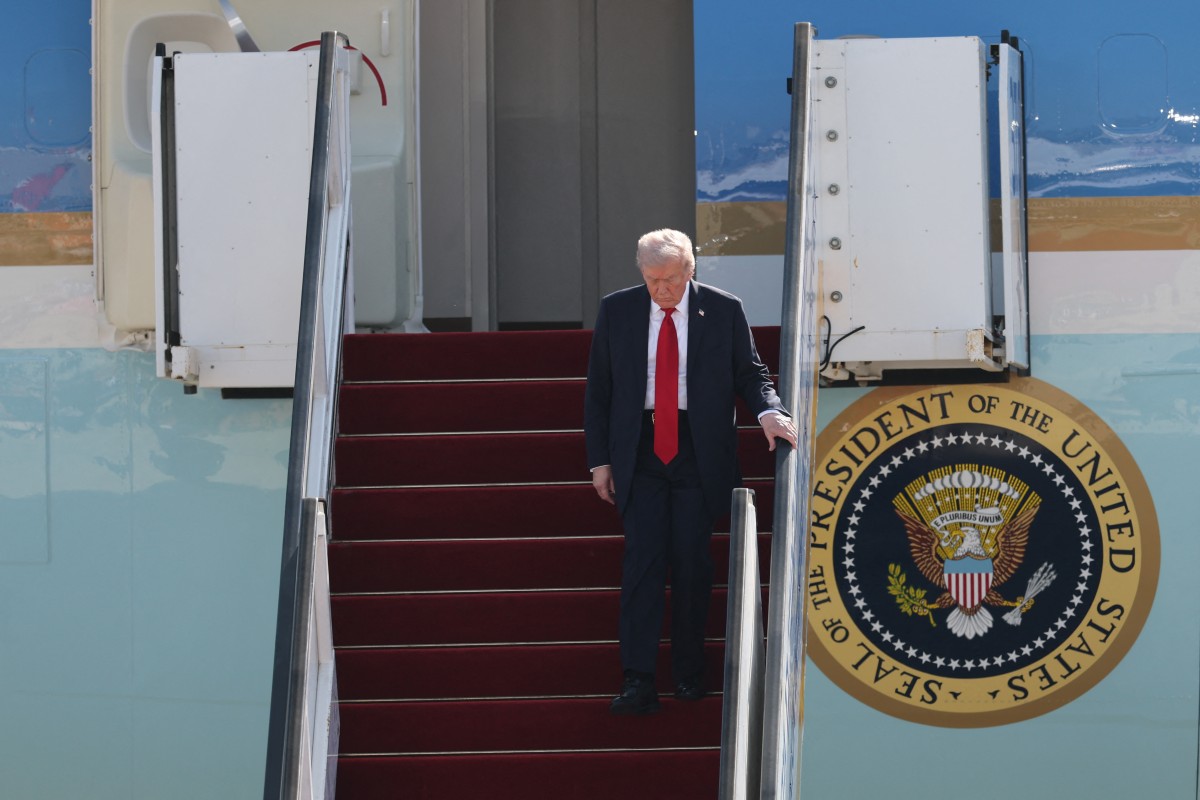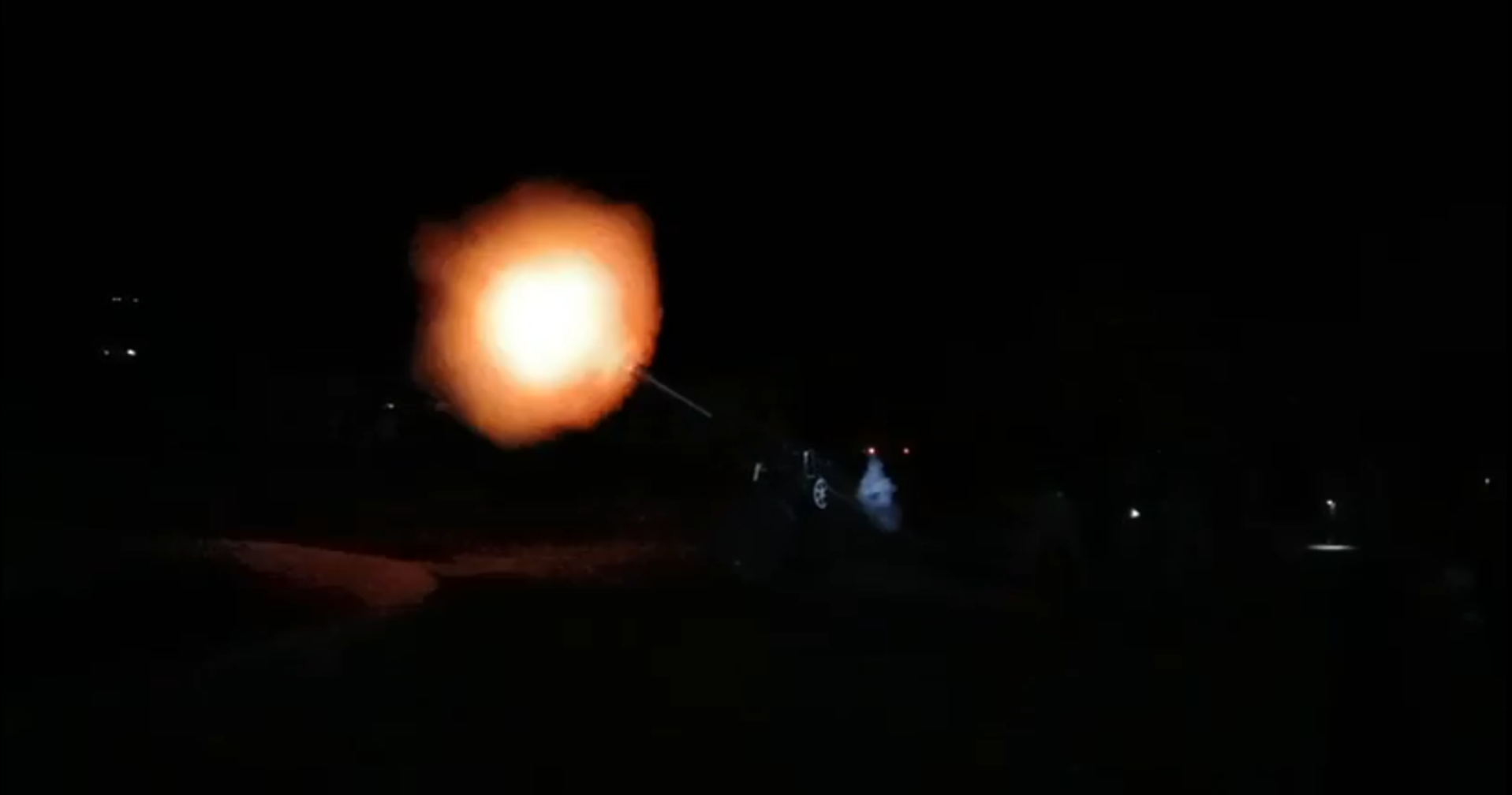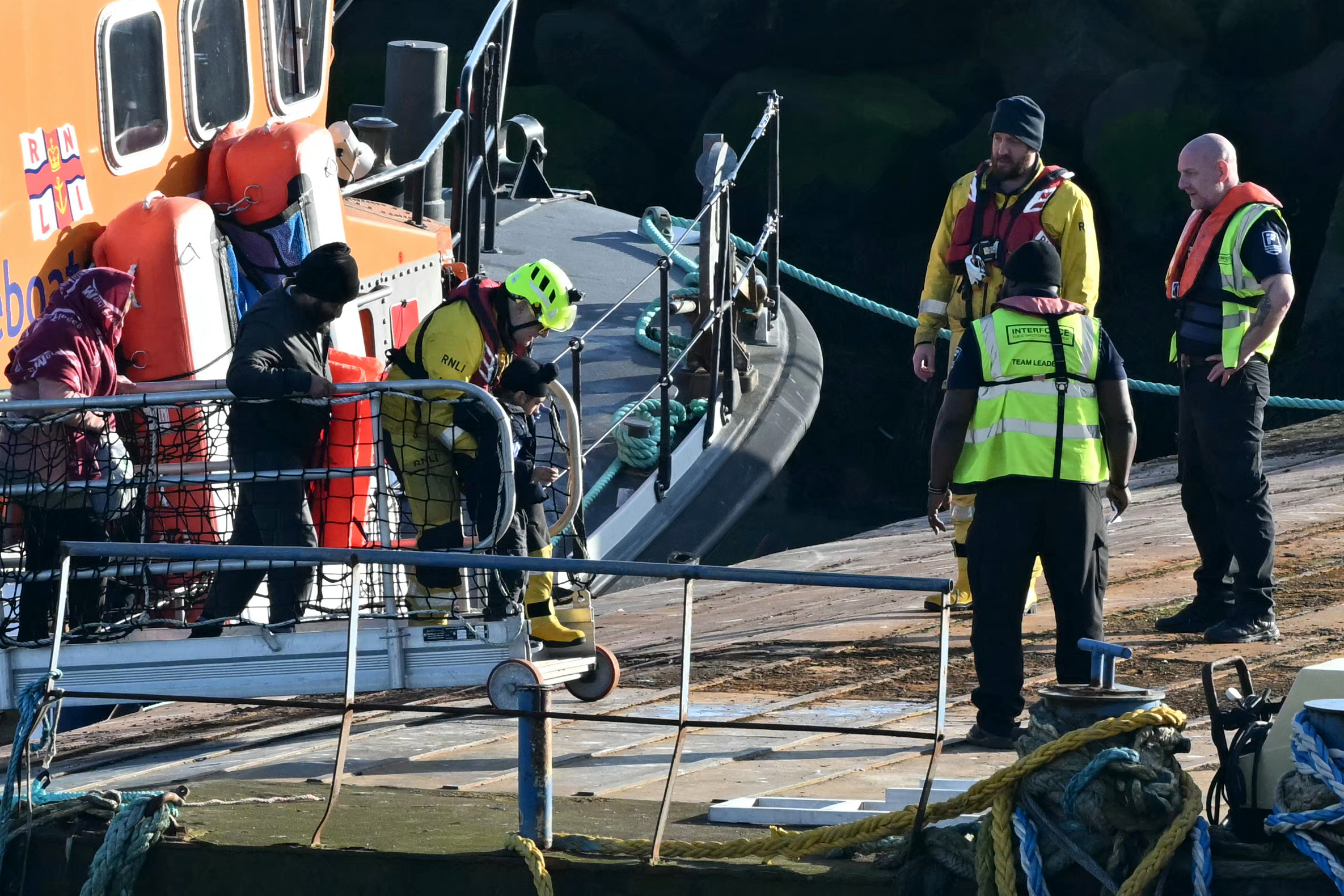
US President Donald Trump disembarks from Air Force One upon arrival at Ben Gurion Airport on the outskirts of Lod near Tel Aviv on October 13, 2025, as he travels to Israel and Egypt. (AFP)
JERUSALEM/GAZA: The Hamas-run Prisoners Office said on Monday that buses carrying the freed Palestinian prisoners arrived in the West Bank city of Ramallah and in the Gaza Strip.
Israel freed more than 1,900 prisoners and detainees after Hamas freed all remaining living hostages held in Gaza under the two sides’ ceasefire deal.
The buses arrived in Ramallah after leaving Ofer prison, in the Israel-occupied West Bank, said the Prisoners Office. At least one bus also crossed into the Gaza Strip, it said.
Earlier, Hamas handed over 20 surviving Israeli hostages to the Red Cross as part of US President Donald Trump's ceasefire deal.
News agencies quoting Israel’s public broadcaster reported Hamas had handed over all 20 surviving Israeli hostages to Red Cross representatives.
Earlier, President Donald Trump arrived in Israel to celebrate the US-brokered ceasefire and hostage deal between Israel and Hamas, an agreement that he declares has effectively ended the war and opened the door to building a durable peace in the Middle East.
The moment, however, remains fragile, with Israel and Hamas still in the early stages of implementing the first phase of the plan, which includes the release of Israeli hostages that have been held since the Oct. 7, 2023, attack by Hamas-led militants.
With families overjoyed at the impending reunions and Palestinians eager for a surge of humanitarian assistance, Trump thinks there is a narrow window to reshape the region and reset long-fraught relations between Israel and its Arab neighbors.
“The war is over, OK?” Trump told reporters traveling with him aboard Air Force One while on his way from Washington DC to Israel.
“I think people are tired of it,” he said, emphasizing that he believed the ceasefire would hold because of that.
While major questions remain about the future of Hamas and Gaza, the exchange of hostages and prisoners marked a key step toward ending the deadliest war ever between Israel and Hamas.
As the war dragged on, demonstrators accused Prime Minister Benjamin Netanyahu of prolonging the war for political purposes, even as he accused Hamas of intransigence. Last week, under heavy international pressure and increasing isolation for Israel, the bitter enemies agreed to the ceasefire.
With the hostages’ release, the sense of urgency around the war for many Israelis will be effectively over.
While Israel considers the prisoners to be terrorists, Palestinians view them as freedom fighters against Israeli occupation. Israel has warned Palestinians in the West Bank against celebrating after people are released, according to a prisoner’s family and a Palestinian official familiar with the plans. They spoke on condition of anonymity because they feared retribution.
Trump in Israel, Egypt
Trump is first visiting Israel, where a White House schedule said he would meet with families of the hostages and speak at the Knesset, Israel’s parliament. Vice President JD Vance said Trump was likely to meet with newly freed hostages.
“The war is over,” Trump asserted to reporters as he departed, adding he thought the ceasefire would hold.
Trump will continue to Egypt, where President Abdel Fattah el-Sissi's office said he will co-chair a “peace summit” on Monday with regional and international leaders.
Mahmoud Abbas, leader of the internationally recognized Palestinian Authority, will attend, a judge and adviser to Abbas, Mahmoud al-Habbash, told The Associated Press. Netanyahu has rejected any role in postwar Gaza for Abbas, though the US plan leaves the possibility open if the Palestinian Authority undergoes reforms. Hamas seized control of Gaza in 2007.
Other key questions in the ceasefire deal remain unresolved, including the future governance of Gaza and the funding for a billion-dollar reconstruction process. Israel wants to ensure that the weakened Hamas disarms, and Netanyahu has warned that Israel could do it “the hard way.” Hamas refuses to disarm and wants to ensure Israel pulls its troops completely out of Gaza.
The Israeli military has withdrawn from much of Gaza City, the southern city of Khan Younis, and other areas. Troops remain in most of the southern city of Rafah, towns of Gaza’s far north, and the wide strip along Gaza’s border with Israel.
Under the US plan, an international body will govern Gaza, overseeing Palestinian technocrats running day-to-day affairs. Hamas has said that Gaza’s government should be worked out among Palestinians.
The plan calls for an Arab-led international security force in Gaza, along with Palestinian police trained by Egypt and Jordan. It said Israeli forces would leave areas as those forces deploy. About 200 US troops are now in Israel to monitor the ceasefire.
The plan also mentions the possibility of a future Palestinian state, another nonstarter for Netanyahu.
Latest News
Iran says 'good progress' in US talks, next round within a week
AN HOUR AGO
.jpg)
Pakistan says 72 Afghan Taliban fighters killed in border response
4 HOURS AGO

India thrash Zimbabwe in T20 World Cup, S.Africa into semi-finals
4 HOURS AGO

South Africa thrash West Indies in T20 World Cup statement win
7 HOURS AGO

Nearly 8,000 died or vanished on migrant routes in 2025: UN
8 HOURS AGO
